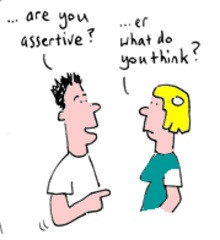Student Input Drives Better Instruction
College instructors generally have little leeway in the curriculum they teach, but each instructor receives plenty of freedom to modify his or her teaching methods.
After all, if students appear bored, confused or disengaged in the classroom, then student learning is not occurring and the instructors are failing at their job. Wise educators seek input from the students enrolled in their class. With this input, they place ineffective methods on the shelf and employ new, innovative and effective techniques. Asking for feedback ensures that each student receives the best quality education and more bang for their buck, with a formula that rewards both sides of the lectern.
How do instructors benefit from asking for feedback?
Many schools already ask students to evaluate the instructor and the course during a mid-term or end of the year assessment. This useful feedback supports instructor reviews and course evaluations. When instructors request frequent feedback, they gain practical knowledge that helps them engage the class and convey the course material before the students fail.
Typical feedback questions include, “What do you like about the class? What can I do better? Has the class improved since the last evaluation? Is there anything else you wish to express to the instructor?” With the answers to these questions, instructors find the pulse of the class and eliminate disengaged students who zone-out or nap. Asking for input enables the instructor make changes that maximize the success of each student every week.
How do students benefit from giving feedback?
Leaving feedback regularly means each student owns a voice in the classroom. Their anonymous, honest opinion expresses how they learn best. Maybe colored visuals engage students better than black and white charts. Verbal exams may be necessary for auditory learners. Struggling students might need additional explanations before the instructor jumps ahead to new material. These and other suggestions made by students cultivate a motivational learning atmosphere where students and the instructor are partners in the educational process.
Students receive major motivation to succeed when they feel like an important part of the class. Particularly in large classes, it’s easy for students to feel like a number. When an educator takes time to ask for feedback and then implement the suggestions, students want to work harder as they receive the opportunities they need to master the material and successfully complete the class requirements.
How do online classes benefit from feedback?
Online classes already meet needs students have for a flexible schedule as students pause or rewind lectures wherever they choose to study. Because adult learners tend to value successful completion of each class in a practical, hands-on manner, online instructors must work extra hard to make the material relevant and worthwhile for their students. By receiving feedback from online learners, instructors help ensure their teaching methods engage and satisfy the needs of each student.
Every college instructor can benefit from implementing a feedback system. This participatory style of instruction motivates the students to master the material as the instructor consistently increases the effectiveness of teaching methods. Regular feedback ensures an atmosphere of partnership that fosters success in every classroom.
| Join Us On Twitter: |
|---|
 |
|---|
| Like Us On Facebook: |
|---|
 |
|---|











![Higher Learning Leads to Higher Earnings, Especially for Men [InfoGraphic] Higher Learning Leads to Higher Earnings, Especially for Men [InfoGraphic]](../4022/4340939642_374fbff6e3_m.jpg)






15 Responses to “Student Input Drives Better Instruction”